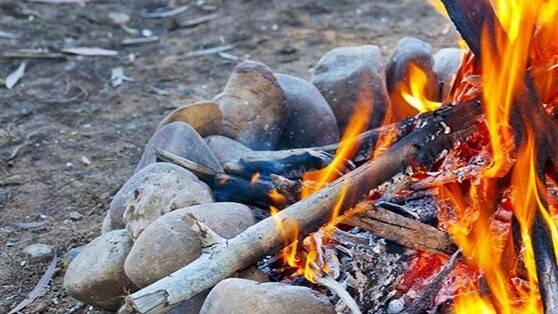
The Spark and the Fire: RE-Thinking Conflict in a Time of Polarization
Julie Hrdlicka | Conflict Revolution
Conversations feel harder these days. Whether about parenting, work challenges, climate change, or other global issues, they can feel exhausting and overwhelming. Many of us avoid them to escape judgment or shame, while others retreat into echo chambers where everyone agrees. In many ways, we’ve just stopped talking to each other.
Political theorist Robert Talisse warns:
“When people grow less able to navigate disagreement, they eventually believe democracy is possible only when everyone agrees with them. This is a profoundly anti-democratic stance.”
When we only surround ourselves with voices that mirror our own, we feed polarization, fear, and disconnection, eroding both democracy and our shared humanity.
We forget what we can learn through different ideas and perspectives. When we encounter something new, an idea that challenges our assumptions it can ignite something inside us. It can help us see connections we missed, reveal gaps in our thinking, and spark creativity.
Author Michael Austin puts it plainly:
“Democracy calls us to have uncomfortable conversations. It asks us to listen to each other even when we would rather be listening to ourselves... The entire outrage industry has been designed to keep us in our bubbles, never challenged by disagreement and never required to think that we might be wrong.”
Conflict as Fire
One way to think about conflict is as a fire. The spark is the issue, whether it is work ethics, gender equity, or something else. But the spark is just the beginning. The real fire is the interaction: how we show up with ourselves and each other when things heat up.
Fire can spread like a destructive wildfire, or it can burn like a campfire, intentional, and nourishing when tended with care. Tending the fire doesn’t mean avoiding difficult conversations, it means the opposite. It’s about stepping into the heat with awareness and courage, noticing what fuels the flames, and choosing how to respond instead of reacting from fear or old patterns.
The challenge is that conflict often stirs up old wounds, learned behaviors, and sometimes trauma. Systems of power like racism, sexism, inequity enter the room too. They shape how safe or connected we feel and influence whether we engage with strength or defensiveness.
That’s why awareness matters. Before stepping into the fire, we can ask: Do I want to be in this conversation right now? And if I do, how will I show up? What kind of fire do I want this to be?
Showing Up with Intention
As Prentis Hemphill reminds us: “When harm happens, too often the only lesson learned is how not to become the victim. It serves us all to study how not to become the perpetrator too.”
This is an invitation to look beyond self-protection. In conflict, we often focus on defending ourselves from harm, but what if we also focused on how not to cause harm? This shift changes how we enter the fire: with care, not just for our own safety, but for the humanity of the other person.
And Audre Lorde offers this wisdom: “Difference must be not merely tolerated, but seen as a fund of necessary polarities between which our creativity can spark... Only then can the power to seek new ways of being in the world generate.”
Lorde reminds us that difference isn’t a problem to solve; it’s a source of possibility. When we treat disagreement as an opportunity for creativity instead of a threat, conflict becomes a place for growth, not destruction.
When we engage this way, we shift more than the conversation. We reshape relationships and open space for real change. That’s what reclaiming our shared humanity looks like.
Next time you feel a spark:
Take a moment to ground yourself—move your body, feel your feet on the floor, or take a deep breath. Whatever helps you return to center.
Then ask yourself:
- Am I ready to step into this fire?
- What kind of fire do I want this to be?
- How do I want to show up?
If this post sparked something for you, I’d love to hear your thoughts. Share them on this post, explore more on The Love in Revolution Blog at Conflict Revolution, or connect with me directly at julie@conflictrevolution.ca.
References
- Robert Talisse: Not All Polarization is Bad – But the U.S. Could Be in Trouble
- Michael Austin: We Must Not Be Enemies: Restoring America’s Civic Tradition
- Prentis Hemphill: What It Takes to Heal
- Audre Lorde: The Master’s Tools Will Never Dismantle the Master’s House